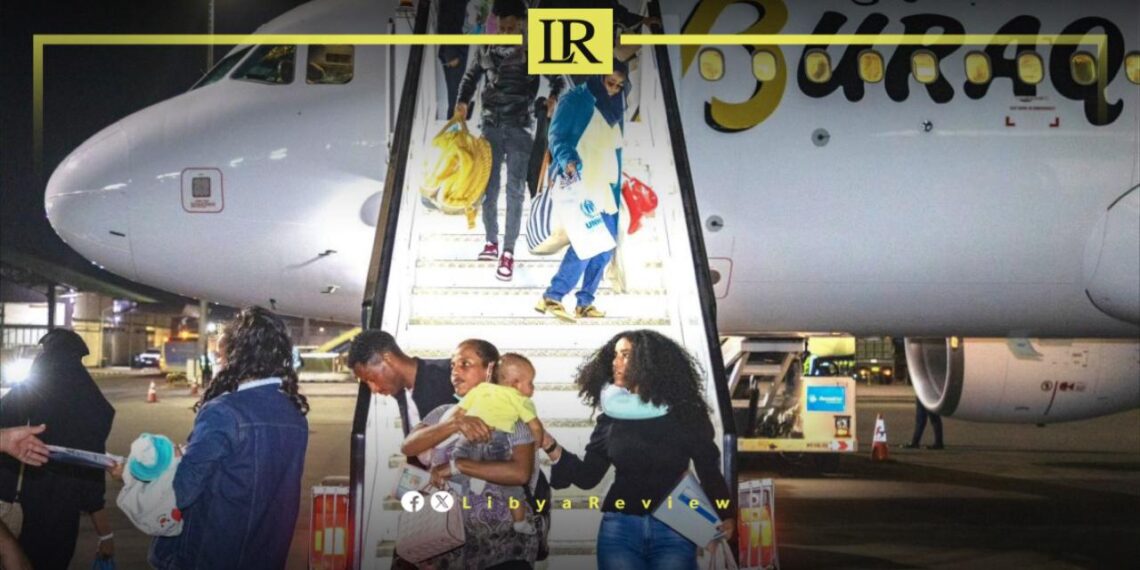On Thursday, Rwandan immigration officers received 113 refugees from Libya. These refugees, hailing from South Sudan, Eritrea, Sudan, Côte d’Ivoire, Ethiopia, and Somalia, represent the 18th group evacuated from Libya under an emergency transit mechanism established by the Rwandan government and the United Nations refugee agency.
This mechanism, initiated in 2019, aims to assist African asylum seekers trapped in Libyan detention centres. Since its inception, Rwanda has welcomed over 2,300 asylum seekers through this programme.
The Ministry of Emergency Management reiterated Rwanda’s commitment to addressing the global refugee crisis and supporting those in need. In a statement on X (formerly Twitter), the ministry highlighted Rwanda’s ongoing efforts to provide refuge and assistance to displaced individuals.
Asylum claims for these refugees are processed in Rwanda. To date, more than 1,600 of these migrants have been resettled in third countries. This process ensures that refugees receive the necessary support and a chance for a better future.
Rwanda continues to play a significant role in the global effort to manage the refugee crisis. Currently, the country hosts over 130,000 refugees, predominantly from the Democratic Republic of Congo (DR Congo) and Burundi. This latest group of arrivals underscores Rwanda’s ongoing dedication to humanitarian efforts and international solidarity.
The emergency transit mechanism serves as a critical lifeline for many stranded in Libya’s harsh conditions. By providing a safe haven and processing asylum claims, Rwanda is making a substantial impact on the lives of these refugees. The collaborative efforts between Rwanda and international agencies highlight the importance of global cooperation in addressing refugee crises.
Notably, Tripoli Criminal Court has convicted three individuals of orchestrating illegal migration and human trafficking. The court found the defendants guilty of coordinating cross-border illegal migration through an organization linked to other networks involved in smuggling migrants by land and sea.
The first defendant received a 10-year prison sentence, while the second and third defendants were each sentenced to five years in prison. Additionally, the court ordered the confiscation of the transportation means used in the smuggling operations.
Libya, situated on the Mediterranean coast, is a key transit point for migrants seeking to reach Europe. The nation has been grappling with the challenges posed by illegal migration, exacerbated by its protracted political instability. This latest court ruling is a significant step in addressing these challenges and sends a strong message to traffickers and smugglers.
The sentences handed down by the court aim to serve as a deterrent to others involved in such illegal activities. By confiscating the means of transportation, the court also aims to disrupt the logistics of human trafficking operations, further hampering the activities of smuggling networks.


